When it comes to home decor, every detail counts, and one often overlooked element is the ceiling. Enter the decorative ceiling hook—a simple yet transformative accessory that can add character and functionality to any room. Drawing from my personal experiences and insights, this guide will explore the myriad ways decorative ceiling hooks enhance your space, their styles, installation tips, and much more.
What Are Decorative Ceiling Hooks?
Decorative ceiling hooks are functional hardware pieces affixed to ceilings, designed to hold various items such as light fixtures, plants, or artwork. They blend practicality with style, making them a favorite among interior designers and DIY enthusiasts alike.
The History of Ceiling Hooks
Ceiling hooks have been utilized for centuries, originally designed for hanging heavy objects such as lanterns and chandeliers. Over time, their design has evolved, incorporating various materials and styles that cater to modern aesthetics.
Why Use Decorative Ceiling Hooks?
Incorporating decorative ceiling hooks into your decor offers numerous advantages:
- Versatility: Suitable for various items from plants to pendants.
- Space-saving: Elevates items off the floor, creating a more spacious feel.
- Design Element: Acts as a statement piece, enhancing your overall decor scheme.

Types of Decorative Ceiling Hooks
Decorative ceiling hooks come in various styles, materials, and designs. Here’s a closer look:
1. Material Variety
- Metal Hooks: Durable and often intricately designed, perfect for modern or industrial styles.
- Wooden Hooks: Offer a rustic charm, ideal for farmhouse or bohemian decor.
- Plastic Hooks: Lightweight and available in various colors, suitable for temporary installations.
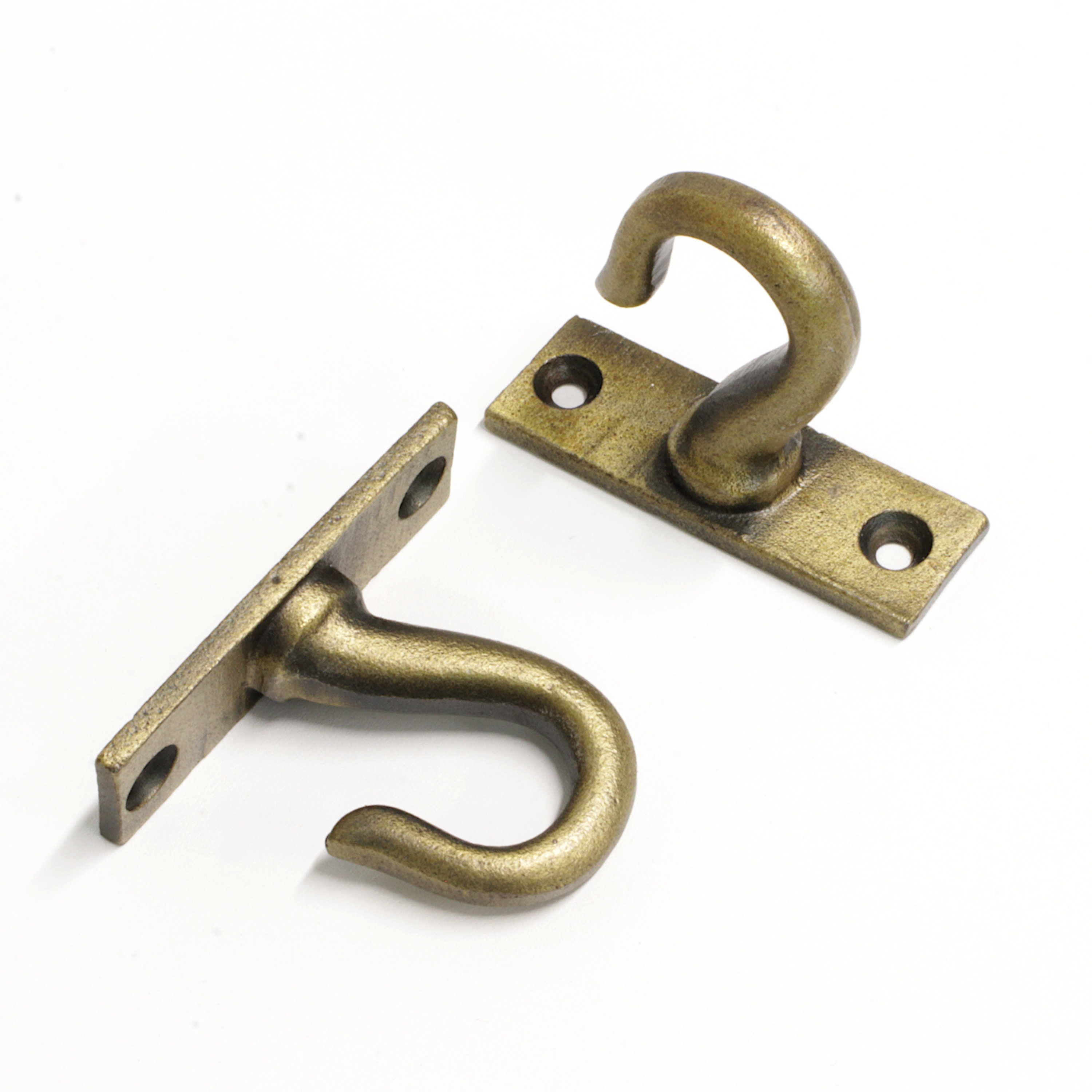
2. Style Options
- Contemporary: Clean lines and minimalistic designs.
- Vintage: Ornate patterns that evoke nostalgia.
- Industrial: Raw finishes and rugged aesthetics.
3. Specialty Hooks
Some hooks are specifically designed for unique applications, such as:
- Heavy-Duty Hooks: Suitable for hanging large items like bicycles or heavy plants.
- Decorative Plant Hooks: Perfect for displaying indoor plants and enhancing greenery.
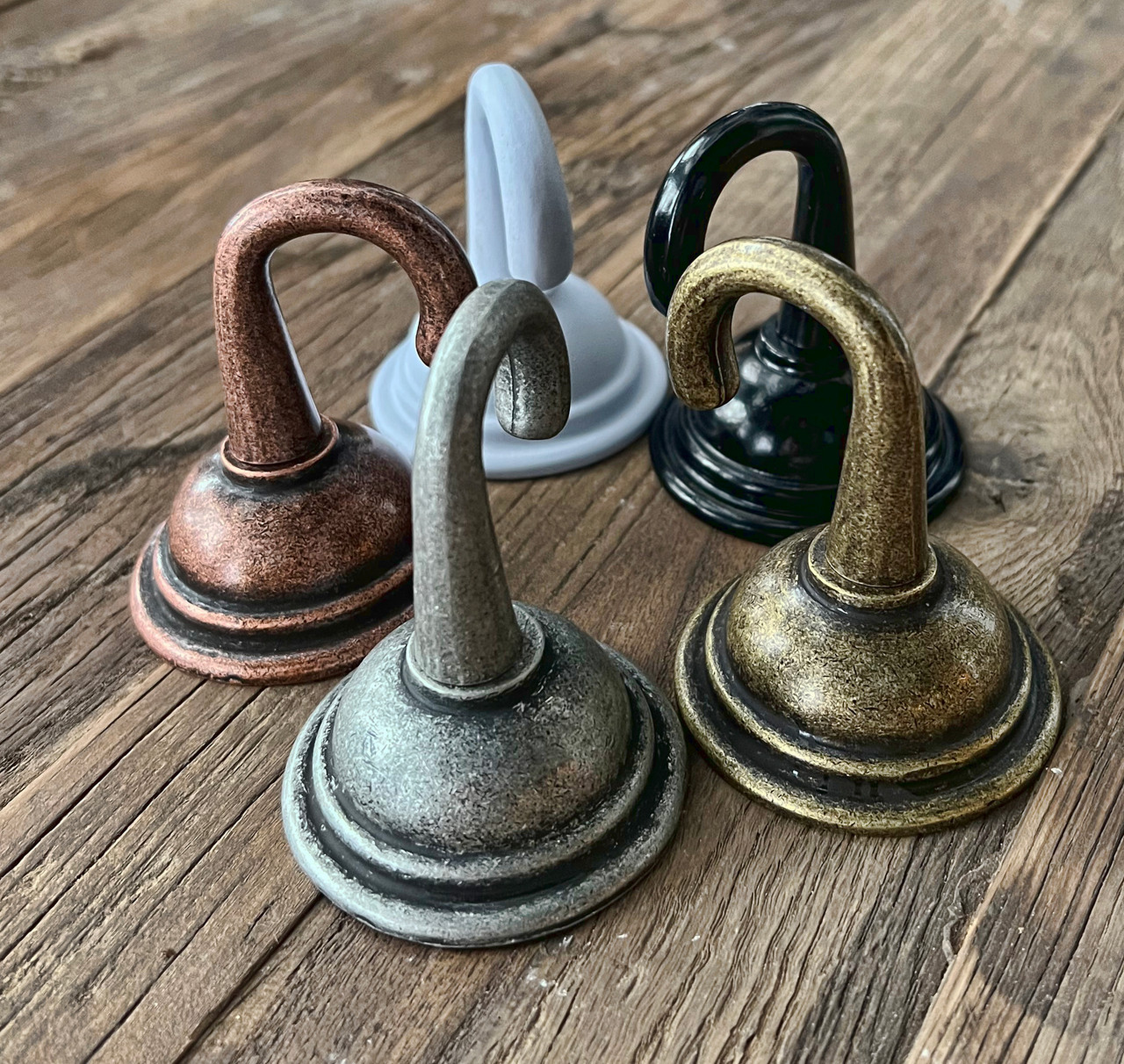
How to Choose the Right Decorative Ceiling Hook
Choosing the right ceiling hook involves considering several factors:
1. Weight Capacity
Always check the weight limit specified by the manufacturer. Heavy-duty hooks are necessary for heavier items like chandeliers or large potted plants.
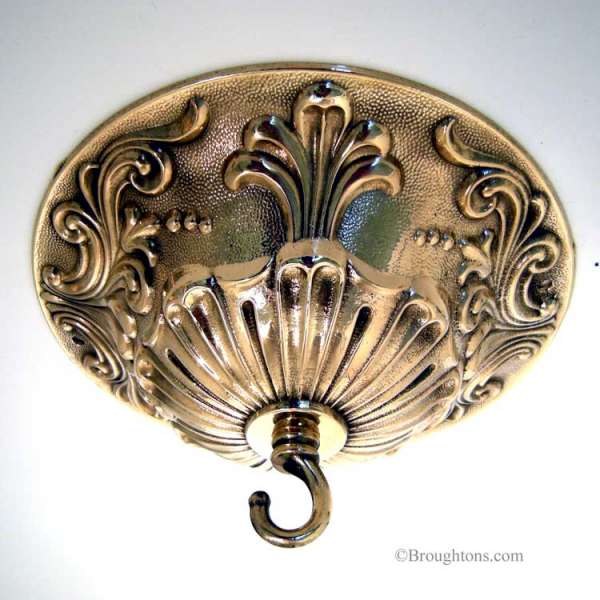
2. Style and Finish
Consider the overall theme of your room. A vintage hook may clash in a modern space, so choose accordingly.
3. Installation Requirements
Look for hooks that come with installation hardware, and consider whether you need additional tools for proper installation.
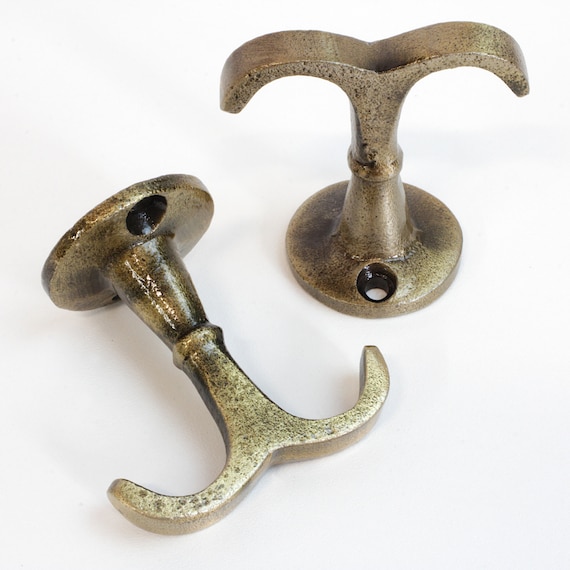
Installation Tips for Decorative Ceiling Hooks
Installing ceiling hooks can be a straightforward process if you follow these steps:
Step 1: Select the Location
Find the perfect spot for your hook—ideally in a ceiling joist for maximum support.

Step 2: Gather Your Tools
- Drill
- Screwdriver
- Stud finder
- Level
Step 3: Mark and Drill
Using the stud finder, locate a joist, mark the drill spot, then drill a pilot hole for the screw.
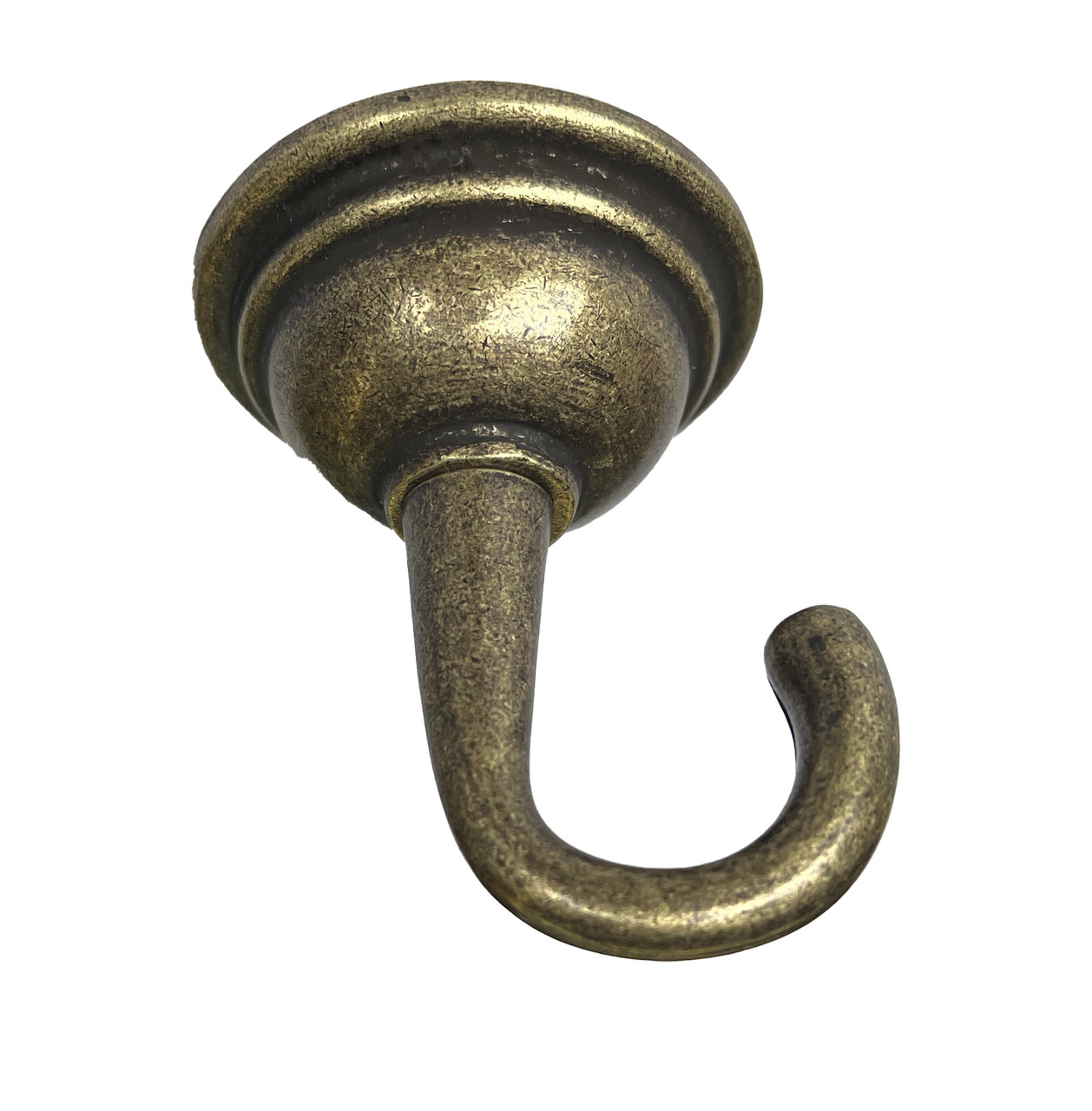
Step 4: Attach the Hook
Secure the hook by screwing it into the drilled hole. Ensure it’s tight and stable.
Step 5: Hang Your Item
Carefully hang your decorative item, ensuring that the hook can support its weight.
Maintaining Decorative Ceiling Hooks
To keep your decorative ceiling hooks looking their best:
1. Regular Cleaning
Dust hooks regularly to keep them clean and stylish.
2. Check Stability
Periodically check the hooks for any signs of wear or instability, especially if they’re holding heavy items.
Pros and Cons of Decorative Ceiling Hooks
| Pros | Cons |
|---|---|
| Enhances decor | May require professional installation for heavy items |
| Versatile applications | Possible ceiling damage during installation |
| Space-saving | Limited to ceiling height |
Decorative Ceiling Hooks in Different Rooms
Decorative ceiling hooks can enhance the aesthetics of every room in your home.
Living Room
In the living room, hooks can hold pendant lights or decorative plants, adding a lively touch to space.
Kitchen
Use hooks to hang pots, pans, or decorative herbs, combining functionality with style.
Bathroom
Ceiling hooks can be excellent for hanging lightweight towels or decorative elements.
Bedroom
Use decorative hooks to hang light fixtures above the bed or display artwork attractively.
Comparison: Decorative Ceiling Hooks vs. Wall Hooks
| Feature | Decorative Ceiling Hooks | Wall Hooks |
|---|---|---|
| Space Utilization | Maximizes vertical space | Utilizes wall space |
| Design Versatility | Can be a focal point | Usually more functional |
| Weight Capacity | Varies widely | Often less sturdy |
FAQs About Decorative Ceiling Hooks
1. Can I install decorative ceiling hooks on any ceiling type?
Most decorative ceiling hooks can be installed on drywall and plaster ceilings, but it’s best to secure them into ceiling joists for support.
2. What weight can decorative ceiling hooks hold?
The weight capacity varies by hook design and material. Always refer to the manufacturer’s guidelines for specifics.
3. Are decorative hooks easy to remove?
Yes, most decorative hooks can be removed with standard tools, but be cautious to avoid damaging the ceiling.
4. Can I paint my decorative ceiling hooks?
Absolutely! If you wish to match your home decor, using spray paint or a brush can personalize your hooks.
Conclusion
Decorative ceiling hooks are more than just functional hardware; they are a versatile design element that can elevate the aesthetics of any room. From supporting beautiful plant displays to hanging striking light fixtures, the possibilities are endless. With proper selection and installation, these hooks will serve as practical art pieces in your home. Embrace creativity and let your ceilings shine with the help of decorative ceiling hooks!